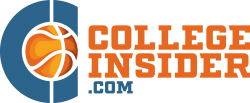Three Prong Fork
Three Prong Fork
Scheduling is an often discussed topic in the world of college athletics. There are nearly as many approaches to the task as there are programs competing. For us it isn’t the road less traveled but the road traveled most often and we spend a lot of time on the road during the months of November and December.
For Oakland University scheduling is essentially three-prong fork with recruiting, coaching and money being the driving forces behind our approach.
Players want to compete against big time opponents. When we are recruiting kids we can point to the fact that annually we schedule games against the likes of Kansas, Kentucky, Tennessee, UCLA and Michigan State. In some cases we are fortunate enough to have a program like Tennessee come to Oakland to play (two for one), but more often than not we are playing these teams exclusively on their home courts. But that gives our players the opportunity to play in places like Allen Fieldhouse, Pauley Pavilion and Rupp Arena.
In recent years we have had some very good teams here at Oakland and those teams competed very well on the road in some of those venues. We have lost more of those games than we have won, but they were great opportunities and great experiences for our players.
Another major factor in our scheduling has been the fact that we are in a one-bid league. The Summit League is very good, but it has never gotten more than one team into the NCAA Tournament. Mid-Major conferences like the Colonial or Missouri Valley get multiple teams into the Big Dance and that process starts with scheduling in November and December. A high percentage of the games they schedule are 50-50 games, giving themselves an excellent chance to win and create an impressive resume for the NCAA selection committee.
We certainly don’t go into games waving the white flag of surrender, but playing Kentucky in Rupp is certainly not a 50-50 game.
The bottom line for us is that we have to win the Summit League tournament in order to secure a bid to the NCAA Tournament so our non-conference win-loss record is irrelevant in the big picture. In the past four seasons we have 94 wins. That’s over 23 wins a season. During that same stretch we have played 26 games against BCS opponents. We are 3-23 in those games. If I scheduled differently we may have another 15-20 wins. Now you are talking about an average of 25 to 28 wins a season, but those additional wins wouldn’t help us in the Summit League standings.
Playing teams like Michigan State and Tennessee helps us from a coaching standpoint in that those games completely expose our weaknesses. We can effectively use the dribble drive to beat an average mid-major team, but that won’t work against the Spartans or the Volunteers so we need to adjust. Our post players can have their way against lesser opponents, but that won’t happen against bigger and stronger teams. Those adjustments are good teaching tools and while we may not have won at Tennessee, the adjustments we made will serve us well in conference play.
The last prong on the fork is money. We bring in a lot of money, playing BCS schools on the road and that affords us the opportunity to charter to all road games. If we play a game on Saturday night in the Dakotas we are home in our beds before sunrise. Otherwise we would be up early to catch an early morning flight that wouldn’t get us home until Sunday evening.
Being able to charter rather than fly commercial has really helped us within our own conference over the past few years. And for us it’s all about conference play so that gives us an advantage.
What works for one may not work for another, but the three-prong fork has certainly worked well for us.


